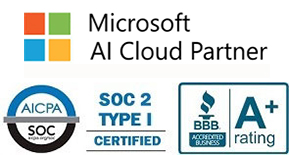
In an age defined by digital transformation, businesses are increasingly relying on cloud computing for its scalability, flexibility, and efficiency. However, the convenience of the cloud also brings forth a new set of challenges, particularly in the realm of security. This blog post aims to comprehensively address cloud security, answering fundamental questions, exploring potential threats, and providing nine actionable strategies to fortify your cloud security measures.
What is Cloud Security?
Cloud security encompasses a set of protocols, technologies, and controls designed to safeguard data, applications, and infrastructure hosted on cloud platforms. As organizations transition to cloud computing, understanding and implementing robust cloud security measures become crucial for mitigating risks and ensuring a secure digital environment.
How Secure is Cloud Computing?
While reputable cloud service providers implement robust security measures, it's vital to recognize that security is a shared responsibility. Users must actively engage in securing their data on the cloud, understanding the shared responsibility model and taking proactive measures to protect their assets.
Why is Cloud Security Important?
The significance of cloud security cannot be overstated. A breach in security could lead to severe consequences, including financial losses, reputational damage, and legal implications. A comprehensive cloud security strategy is paramount to safeguarding sensitive information and maintaining business continuity.
Establishing a Cloud Security Strategy
Building an effective cloud security strategy involves a proactive approach to identify potential threats and implementing preventive measures. Let's delve into the nine best ways to enhance your cloud security with detailed explanations and examples:
1. Deploy Multi-Factor Authentication (MFA): Multi-Factor Authentication adds an extra layer of security beyond passwords. For example, in addition to entering a password, users may need to verify their identity through a unique code sent to their mobile device. This additional step significantly reduces the risk of unauthorized access, even if login credentials are compromised.
2. Manage Your User Access to Improve Cloud Computing Security: Implementing the principle of least privilege ensures that users have access only to the resources and data necessary for their roles. For instance, a marketing team member should not have the same level of access as a system administrator.
3. Restrict Collaborative Access: Limiting collaborative access involves controlling who can access and edit shared documents or collaborate on cloud platforms. For example, setting permission levels on cloud storage platforms ensures that only authorized individuals can make changes to critical documents.
4. Monitor End-User Activities With Automated Solutions to Detect Intruders: Automated solutions, such as Security Information and Event Management (SIEM) systems, continuously monitor user activities. If an unusual pattern is detected, such as multiple failed login attempts or access from an unusual location, the system can trigger alerts for further investigation.
5. Distribute Metadata to Prevent Breaches: Distributing metadata involves spreading data across multiple locations, making it more challenging for attackers to gain access to sensitive information. For instance, instead of storing all customer data in one central database, distribute it across multiple servers or cloud regions.
6. Create a Comprehensive Off-boarding Process to Protect Against Departing Employees: An off-boarding process should include revoking access to all systems and accounts, collecting company-owned devices, and ensuring that departing employees are not leaving with sensitive information. This process helps prevent potential security threats posed by former employees.
7. Provide Anti-Phishing Training for Employees on a Regular Basis: Regular training sessions on identifying and avoiding phishing attempts can empower employees to recognize and report suspicious emails. For example, conducting simulated phishing exercises and providing immediate feedback can reinforce good security practices.
8. Consider Cloud-to-Cloud Backup Solutions: Cloud-to-Cloud backup solutions involve regularly backing up data from one cloud service to another. This ensures that if one cloud provider experiences a service outage or data loss, you have a redundant copy of your critical information in another cloud environment.
9. Conduct Penetration Testing Regularly: Penetration testing involves simulating cyber-attacks to identify vulnerabilities in your cloud infrastructure. Regular testing provided by IT support helps uncover and address potential weaknesses before malicious actors can exploit them.
Cloud Security Threats to Watch For:
1. Internet of Things (IoT) Attacks: IoT devices, such as smart cameras and sensors, can be vulnerable to attacks. For instance, a compromised IoT device may serve as an entry point for attackers to infiltrate the broader cloud network.
2. Ransomware: Ransomware attacks encrypt data, demanding a ransom for its release. Organizations must implement robust backup solutions and educate employees on recognizing potential ransomware threats.
3. Mobile Exploits: As mobile devices become integral to business operations, securing them is vital. Mobile exploits, such as malicious apps or unsecured Wi-Fi connections, can lead to unauthorized access to sensitive data.
4. Artificial Intelligence: While AI has transformative potential, it can also be exploited for malicious purposes, such as creating sophisticated phishing attacks. Implementing safeguards, like AI-driven threat detection systems, is essential to prevent AI-driven security breaches.
Secure Your Business with ICS
As businesses navigate the complexities of cloud security, the strategies outlined here serve as a solid foundation for safeguarding digital assets. Whether deploying Multi-Factor Authentication or preparing for emerging threats, a proactive approach is key.
For personalized guidance in implementing these strategies, consider reaching out to Integrated Computer Services Our expertise can help tailor solutions to your specific needs, ensuring a robust and resilient cloud security posture.
In the ever-evolving digital landscape, staying informed and proactive remains the best defense. Secure your business for the future with these strategies and the support of trusted partners. Stay secure, stay vigilant, and invest in the longevity of your digital assets.
About Us:
- 150+ 5-Star Google Rated IT Firm
- Microsoft Certified Cloud AI Partner
- SOC II Certified Managed Service Provider
- Better Business Bureau A+ Rated






